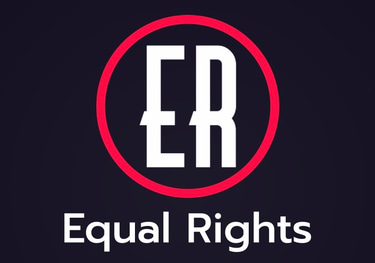Climate Change and Human Rights
The Overlooked Connection
Kylo B
7/20/2024
Climate Change and Human Rights, The Overlooked Connection
Climate change is one of the most pressing global challenges of our time, with profound implications for the environment, economies, and societies. However, its impact on human rights is often overlooked.
This article explores the connection between climate change and human rights, highlighting how the effects of climate change are threatening the fundamental rights of individuals and communities worldwide.
The Human Rights Impact of Climate Change
Right to Life and Health
Extreme Weather Events: Climate change is increasing the frequency and intensity of extreme weather events, such as hurricanes, floods, heatwaves, and droughts. These events pose direct threats to human life, causing injuries, fatalities, and the spread of diseases. The aftermath of such disasters often leads to long-term health issues and strains on healthcare systems.
Air Quality and Respiratory Issues: Rising temperatures and changing weather patterns contribute to poor air quality, exacerbating respiratory conditions such as asthma and chronic obstructive pulmonary disease (COPD). Increased air pollution also heightens the risk of cardiovascular diseases and other health problems.
Right to Water and Sanitation
Water Scarcity: Climate change affects the availability and quality of water resources. Prolonged droughts and altered precipitation patterns reduce water supply, impacting drinking water availability and agricultural productivity. This scarcity disproportionately affects marginalized communities, leading to conflicts over water resources.
Water Contamination: Flooding and extreme weather events can contaminate water sources with pollutants, pathogens, and debris, compromising access to safe drinking water and sanitation facilities. This contamination increases the risk of waterborne diseases and negatively impacts public health.
Right to Food and Adequate Standard of Living
Food Security: Climate change disrupts agricultural production through altered growing seasons, increased pests and diseases, and extreme weather events. These disruptions threaten food security, leading to higher food prices, reduced crop yields, and increased hunger and malnutrition, particularly in vulnerable regions.
Livelihoods: Many communities, especially in developing countries, rely on agriculture, fishing, and natural resources for their livelihoods. Climate change-induced disruptions in these sectors threaten their economic stability and exacerbate poverty.
Right to Housing and Security
Displacement and Migration: Rising sea levels, extreme weather events, and environmental degradation force people to leave their homes, leading to internal displacement and cross-border migration. Displaced populations often face inadequate living conditions, lack of access to services, and heightened vulnerability to exploitation and violence.
Loss of Land and Property: Coastal erosion, sea-level rise, and desertification result in the loss of land and property, displacing communities and undermining their security and well-being. Indigenous peoples and rural communities with strong ties to their land are particularly affected.
Right to Culture and Identity
Impact on Indigenous Communities: Indigenous peoples often have a deep cultural and spiritual connection to their land and natural resources. Climate change threatens their traditional ways of life, disrupting their cultural practices, knowledge systems, and identity. The loss of biodiversity and changing ecosystems further affect their cultural heritage.
Loss of Cultural Heritage Sites: Rising sea levels, extreme weather, and environmental degradation endanger cultural heritage sites, including historical landmarks, sacred sites, and traditional buildings. The destruction of these sites erases cultural history and identity.
Addressing the Human Rights Impact of Climate Change
International Legal Frameworks
Human Rights Treaties: Existing international human rights treaties, such as the International Covenant on Civil and Political Rights (ICCPR) and the International Covenant on Economic, Social and Cultural Rights (ICESCR), provide a framework for addressing the human rights impacts of climate change. States are obligated to respect, protect, and fulfill human rights, including in the context of climate change.
Paris Agreement: The Paris Agreement, adopted under the United Nations Framework Convention on Climate Change (UNFCCC), emphasizes the importance of considering human rights in climate action. It calls for parties to respect and promote human rights, including the rights of indigenous peoples, local communities, migrants, and children.
National and Local Policies
Climate Adaptation and Mitigation: Governments must implement climate adaptation and mitigation policies that prioritize the protection of human rights. This includes developing resilient infrastructure, promoting sustainable agriculture, ensuring access to clean energy, and enhancing disaster preparedness and response.
Social Protection Programs: Strengthening social protection programs can help vulnerable populations cope with the impacts of climate change. This includes providing financial support, healthcare, education, and housing to those affected by climate-related disasters and environmental changes.
Community-Based Approaches
Participatory Decision-Making: Engaging communities, particularly those most affected by climate change, in decision-making processes is essential. Participatory approaches ensure that the voices and needs of vulnerable groups are considered in climate policies and actions.
Local Knowledge and Practices: Incorporating local knowledge and traditional practices into climate adaptation strategies can enhance their effectiveness and sustainability. Indigenous and local communities possess valuable knowledge about managing natural resources and adapting to environmental changes.
International Cooperation and Assistance
Financial and Technical Support: Developed countries must provide financial and technical support to developing countries to help them address the human rights impacts of climate change. This includes funding for climate adaptation and mitigation projects, technology transfer, and capacity-building initiatives.
Global Solidarity: International cooperation and solidarity are crucial in addressing the global challenge of climate change. Collaborative efforts, knowledge sharing, and joint initiatives can enhance the effectiveness of climate action and ensure that human rights are protected worldwide.
The connection between climate change and human rights is undeniable. As climate change continues to exacerbate environmental and social vulnerabilities, it poses significant threats to fundamental human rights, including the right to life, health, water, food, housing, and culture. Addressing these impacts requires a comprehensive and rights-based approach that integrates climate action with the protection and promotion of human rights. By prioritizing the needs and rights of the most vulnerable populations, we can build a more resilient and equitable future in the face of climate change.
